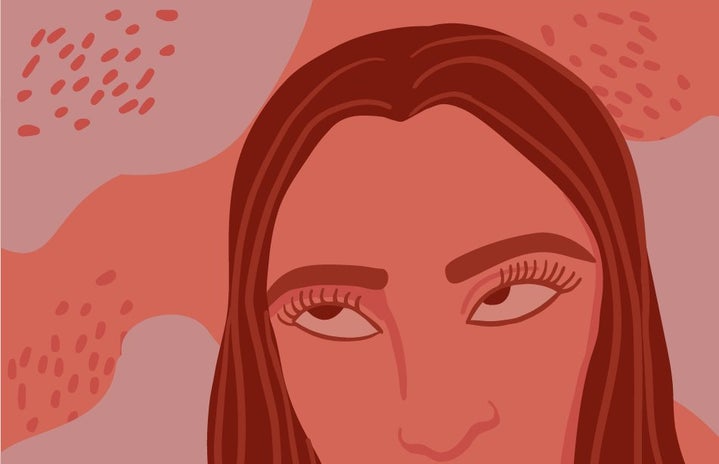“Stop making excuses!! Being healthy isn’t just for the privileged!” wrote Emily Oberg, the founder of Sporty & Rich, on her Instagram Story back in May. In her post, Oberg compared the prices of fresh produce to frozen dinners in an attempt to prove that eating healthy is actually better for your wallet. What Oberg didn’t calculate into her findings were the millions of people who live in food deserts––low-income areas that don’t have easy access to fresh fruits and vegetables. In this case, healthy eating is indeed for the privileged. But, wellness is much more than just eating “healthy.”
“Health” and “wellness” are two of the most subjective ideas on the planet. What works for one person may harm someone else’s well being––for instance, it would be very hard for someone with a dairy allergy to “go keto,” and for young children and pregnant women, it can be hard to sustain a vegan diet, according to NHS Inform.
Privilege runs throughout the wellness industry, making it look exclusive and closed off to those who can’t afford hefty price tags. But, wellness is not just about products, ingredients and workout classes. This side of wellness relies on capitalism and Hollywood to help it stay afloat.

Gwyneth Paltrow is one big name in wellness whose infamous brand Goop profits off of people willing to try anything to boost their chakras or brighten their complexions. Remember when she sold a candle that supposedly smelled like her vagina, or that Jade egg controversy? Unfortunately, Paltrow’s approach to wellness involves a lot of expensive products and experiences that aren’t all that they’re cracked up to be! In fact, one Vanity Fair writer called In Goop Health summits nothing but “greedy” and “pretentious” events for rich people to preach their mantras to attendees. Admittance to the 2019 London summit was around $5,700––a ticket only few can afford.
A lot of inclusivity and appropriation exist in the industry, even if experiences or products don’t cost thousands of dollars. A few years ago, “oil pulling” made headlines as the best new thing one could do for their health. (It is said to purify the body of harmful bacteria and eliminate inflammation.) It’s a practice of Ayurvedic medicine––a holistic approach to health that was developed in India over three centuries ago. These types of practices become mainstream once white women get their hands on them. The same exact thing happened when CBD and THC products hit the market. Marijuana was rebranded by white people as a hot ingredient that could solve a number of health issues––like chronic pain, anxiety, depression and acne. But, BIPOC Americans face a contrasting reality when it comes to weed.
“In the US alone, black people are a massive 375 percent more likely to be arrested for possession of marijuana than white people,” Roisin Lanigan wrote for i-D in 2018. “As more and more US states decide that cannabinoids are now acceptable, what becomes of those already imprisoned for minor possession and distribution crimes? And whether their sentences will all be expunged as part of our collective rethinking of marijuana remains unseen.”
A lack of representation exists in the health and wellness spheres of social media as well. Ashley Lennon, co-founder of the Peace & Quiet brand, notes how visual the wellness industry has become. Large companies profit off of aesthetics, like clear skin, shiny hair and toned limbs, but “wellness” comprises the well-being of the mind, body and soul––not just appearance.
“When you think about wellness, chances are you probably envision mainstream fit, white models doing yoga with a green juice in hand,” she said. “Is there a diverse representation on your social media feed? The nectar is to really look past the preconceived image of a leader in the wellness space.”
Wellness is for everyone because every body, mind and soul need to be taken care of. Whether you’ve recently hopped onto the wellness train or are just getting started on your health journey, educate yourself. BIPOC-led wellness brands deserve your attention just as much as a white influencer selling you her favorite organic body wash does.
Check out some of those great brands below.
-
Evelynn Escobar-Thomas launched Hike Clerb in 2017 when she noticed a lack of resources available to women of color looking to heal through nature.
-
The McBride Wine Collection is the largest Black-owned wine company in the country.
-
Golde, founded by Trinity Mouzon Wofford and Issey Kobori, is a superfood brand that makes great matcha and face masks.
-
Brooklyn Tea in Bed-Stuy educated their community through free expert-level tea education classes.
-
Satan’s Breath blends up hot peppers with CBD to make killer hot sauces.
-
Bea Dixon started The Honey Pot Co. to teach people about the importance of natural vagina care.



